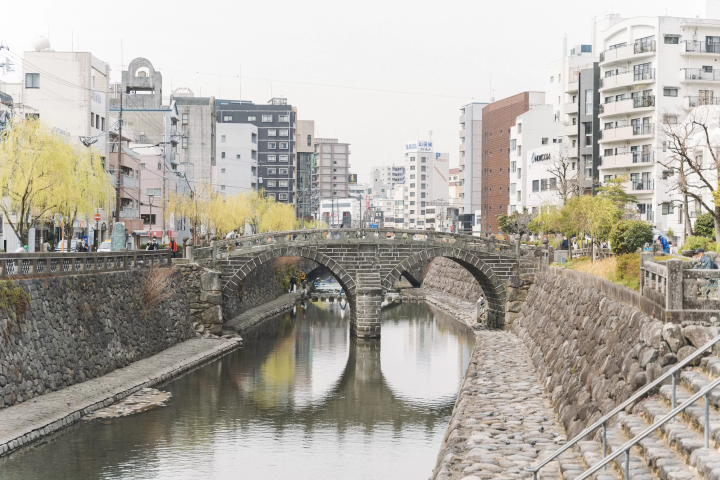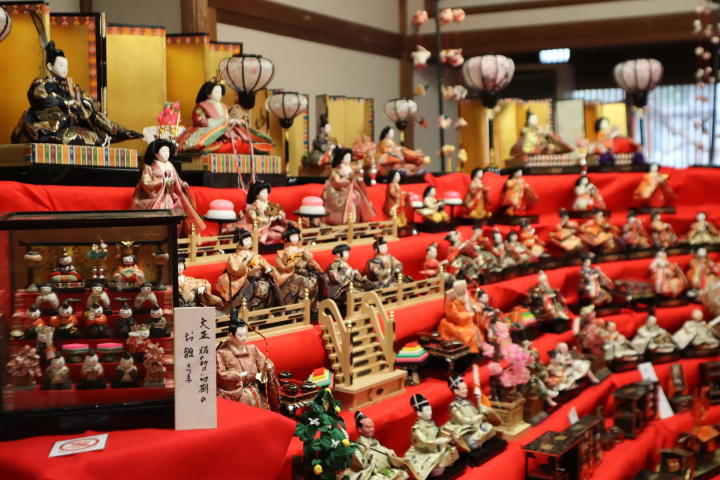[Tsuruga, Fukui Prefecture] Hokuriku Shinkansen opens between Kanazawa and Tsuruga on March 16, 2024! 9 spots where you can enjoy a retro walk in Tsuruga
![[Tsuruga, Fukui Prefecture] Hokuriku Shinkansen opens between Kanazawa and Tsuruga on March 16, 2024! 9 spots where you can enjoy a retro walk in Tsuruga](https://resources.matcha-jp.com/resize/720x2000/2023/12/26-159994.webp)
Tsuruga, Fukui Prefecture, known as a railway and port town, is a popular tourist spot where you can enjoy railway heritage tourism, Japan Heritage sites, and seafood from the Sea of Japan. The Hokuriku Shinkansen finally opened in Fukui Prefecture on March 16, 2024. It can be accessed from Tokyo without changing trains. In this article, we will introduce sightseeing in the retro townscape, which is also popular for its photogenic nature. *The spots introduced in this article are open as usua...
-
Table of Contents
- Access to Tsuruga, Fukui Prefecture
- Tsuruga, Fukui Prefecture - A Place Full of Retro Charm
- ①Tsuruga Railway Museum
- ② Former Tsuruga Port Station lamp shed
- 3. Tsuruga Red Brick Warehouse
- ④Port of Humanity Museum
- ⑤Tsuruga Museum Street
- ⑥Tsuruga City Museum
- Along with the retro townscape, here are some must-see tourist spots!
- ⑦Minato Tsuruga Yama Hall
- ⑧Kehi Shrine
- 9. Nakamichi Genzo Tea Shop: A long-established Japanese tea specialty store
- For plans where you can make matcha and enjoy sweets made with matcha, please click here.
- Highly recommended for train enthusiasts! A rare experience!
- For an introduction to Tsuruga's recommended gourmet foods, please click here.
- In spring, you can also enjoy some very romantic festivals!
Access to Tsuruga, Fukui Prefecture
Tsuruga, Fukui Prefecture, known as a railway and port city, is scheduled to finally extend the Hokuriku Shinkansen on March 16, 2024, after which it will be possible to access Tsuruga from Tokyo without changing trains. For details on how to get to Tsuruga from Tokyo, Osaka, Kyoto, Nagoya, and Kanazawa, please see the following article.
Tsuruga, Fukui Prefecture - A Place Full of Retro Charm
Tsuruga is located in the central-southern part of Fukui Prefecture and has been a key port for maritime traffic with the continent since ancient times. It was the first town on the Sea of Japan coast to have a railway running through it, and is a Japanese heritage site called "Railway Beyond the Sea: A Miracle of Railways Connecting the World." It is full of tourist spots such as the Railway Museum, red brick warehouses and other buildings overflowing with retro romance, as well as beautiful shrines and temples. Furthermore, facing the Sea of Japan, you can enjoy fresh seafood.
You can enjoy touring retro buildings, mainly in the Kanegasaki area adjacent to Tsuruga Port!
①Tsuruga Railway Museum
The railway line opened in Japan about 150 years ago. Tsuruga was the first city on the Japan Sea coast to have a railway laid over it, and it has developed alongside the railway and port as a key transportation hub. Materials that reveal this history are on display here.
② Former Tsuruga Port Station lamp shed
Built around 1882, it is different from modern concrete block or slate construction, with its carefully stacked bricks and arched openings that give it a unique charm.
3. Tsuruga Red Brick Warehouse
This brick building has 100 years of history. It was renovated in 2015 and reborn as a new tourist facility where you can enjoy history, culture, and food, featuring a diorama of Tsuruga's railways and ports, and an attractive restaurant unique to Tsuruga.
④Port of Humanity Museum
Focusing on the historical facts of the Polish orphans and Jewish refugees who overcame numerous hardships to arrive in Tsuruga, the exhibition introduces testimonies and anecdotes from Tsuruga residents at the time, as well as heartwarming exchanges with those involved that continue to this day, conveying the importance of life and the preciousness of peace.
If you walk a little further, you can enjoy other retro townscapes.
⑤Tsuruga Museum Street
Tsuruga flourished as a port town. The area around the port facing the sea is dotted with buildings that retain their old-fashioned atmosphere, as well as historic shrines and temples. Why not try looking for your favorites in the cute retro townhouse shops?
⑥Tsuruga City Museum
This museum occupies the Western-style building of the former Owada Bank. It exhibits materials related to Tsuruga City's archaeology, history, arts and crafts, as well as materials related to the Tsuruga air raids and war damage.
Along with the retro townscape, here are some must-see tourist spots!
⑦Minato Tsuruga Yama Hall
This facility stores and exhibits the magnificent floats that are paraded during the Tsuruga Festival.
⑧Kehi Shrine
It is a prestigious shrine known as "Echizen Ichinomiya" and "the guardian deity of the Hokuriku region." The large wooden torii gate is one of the "Three Great Wooden Torii Gates of Japan," alongside Itsukushima Shrine in Hiroshima and Kasuga Taisha Shrine in Nara, and is designated as an Important Cultural Property of Japan.
A perfect place to take a break after visiting Kehi Shrine!
9. Nakamichi Genzo Tea Shop: A long-established Japanese tea specialty store
![[Tsuruga, Fukui Prefecture] Hokuriku Shinkansen opens between Kanazawa and Tsuruga on March 16, 2024! 9 spots where you can enjoy a retro walk in Tsuruga](https://resources.matcha-jp.com/resize/720x2000/2024/01/18-162634.webp)
![[Tsuruga, Fukui Prefecture] Hokuriku Shinkansen opens between Kanazawa and Tsuruga on March 16, 2024! 9 spots where you can enjoy a retro walk in Tsuruga](https://resources.matcha-jp.com/resize/720x2000/2024/01/18-162633.webp)
![[Tsuruga, Fukui Prefecture] Hokuriku Shinkansen opens between Kanazawa and Tsuruga on March 16, 2024! 9 spots where you can enjoy a retro walk in Tsuruga](https://resources.matcha-jp.com/resize/720x2000/2024/01/18-162632.webp)
A shop where you can enjoy Japanese tea. It's just a two-minute walk from Kehi Shrine, so be sure to check it out.
For plans where you can make matcha and enjoy sweets made with matcha, please click here.
Highly recommended for train enthusiasts! A rare experience!
Take a romantic trip full of history and retro atmosphere, including railway heritage tourism and Japan Heritage sites!
You can go for a day trip or stay overnight and enjoy sightseeing. There are many local Tsuruga delicacies to try, so
We recommend enjoying it together!
For an introduction to Tsuruga's recommended gourmet foods, please click here.
In spring, you can also enjoy some very romantic festivals!
On March 16, 2024, the Hokuriku Shinkansen opened between Kanazawa Station and Tsuruga Station. Tsuruga Station will be the terminus from both the Tokyo and Kansai areas, and is attracting a lot of attention. Tsuruga is a city of railways and ports, and the Shinkansen opened in the town where the first railway ran on the Sea of Japan side, so it is popular among people other than railway fans. There are many tourist spots scattered around, and after the opening of the mountain-side Japan Heritage Old Hokuriku Line Tunnels Heritage Group, the direct train "Europe-Asia International Express" ran to Tsuruga Port, which developed into one of the leading international ports on the Sea of Japan side. We will continue to offer route buses and tour plans, such as new tourist routes of Japan Heritage on the sea side along the Tsuruga Port Line. Come and go on a trip with exciting experiences beyond your imagination.
The contents on this page may partially contain automatic translation.


![2024 edition [Tsuruga, Fukui Prefecture] Summary of access methods from Tokyo, Osaka, Kyoto, Nagoya, and Kanazawa to Tsuruga, the "town of railways and ports"](https://resources.matcha-jp.com/resize/200x2000/2023/12/06-155271.webp)
![[2024 Edition] Thorough explanation of access from Tokyo to Tsuruga, Fukui Prefecture. Enjoy the retro charm of Tsuruga, a town of railways and ports!](https://resources.matcha-jp.com/resize/200x2000/2023/12/15-156988.webp)








![[2024] The Hokuriku Shinkansen will open between Kanazawa and Tsuruga on March 16, 2024! Three popular Japanese cultural experiences you can enjoy in Tsuruga, Fukui Prefecture!](https://resources.matcha-jp.com/resize/200x2000/2024/01/17-162503.webp)




![[2025 Edition] Best Places to See Cherry Blossoms in Fukui, Japan – Top 10 Spots for Hanami & Stunning Views](https://resources.matcha-jp.com/resize/720x2000/2023/03/09-135755.webp)



























![[During Your Kumano Trip] Cape Shionomisaki Tourist Tower](https://resources.matcha-jp.com/resize/720x2000/2025/11/05-249097.webp)

![[Kagoshima] Enjoy Minamisatsuma City to the Fullest! A Guide to the Scenic Beauty and Culture of Five Areas](https://resources.matcha-jp.com/resize/720x2000/2026/02/15-258755.webp)